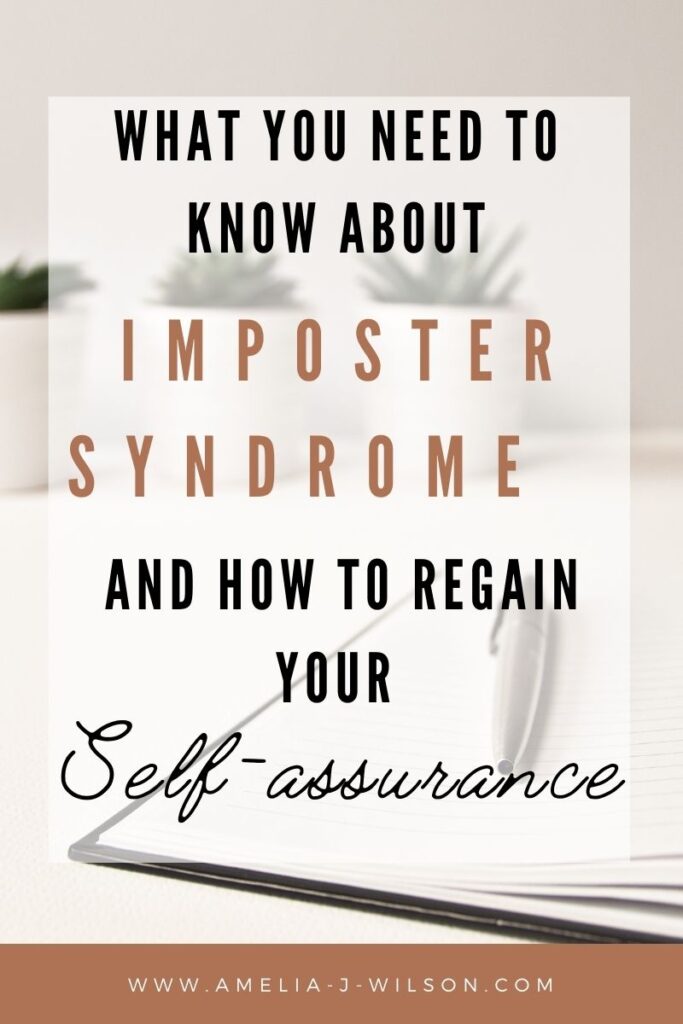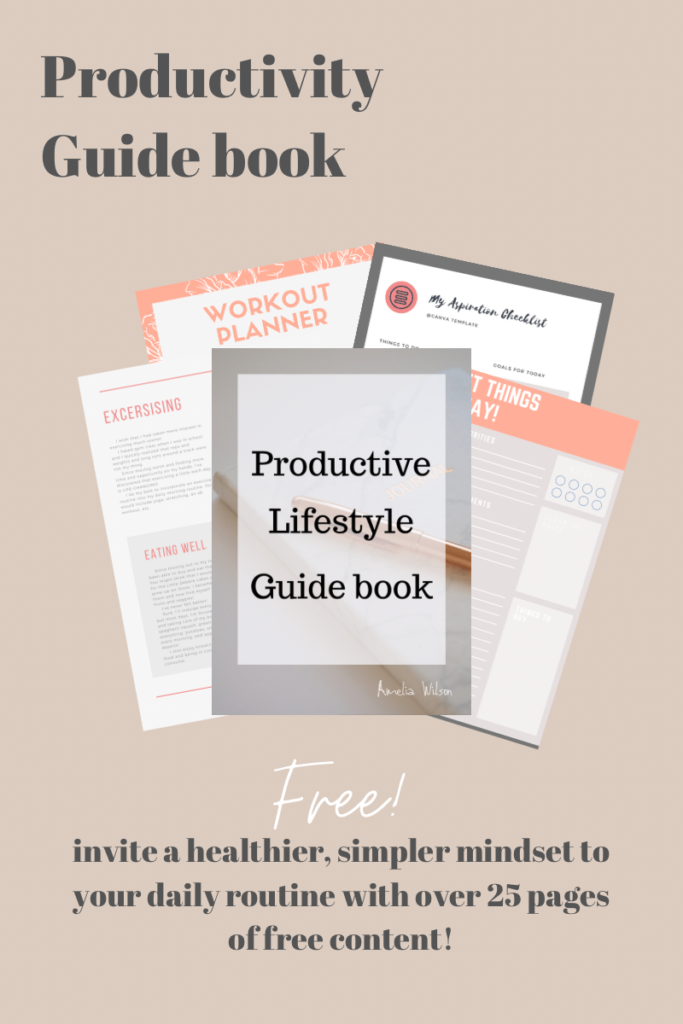This article is part one of two, which dives into imposter syndrome. While this article covers the basics of the mentality, part two will cover ways to treat it.
Disclaimer: All of the views and opinions in this post are solely my own and are not sponsored. This post may include affiliate links, meaning I earn a commission through links at no cost to you.

Many people in the United States and across the world struggle to feel content in their jobs. And surprisingly, one of the biggest reasons regarding this is imposter syndrome.
Imposter syndrome is no new illness, but it does inhibit careers, jobs, classroom work, and social gatherings by making people feel like failures, disappointments, and people unworthy of their current status.
Keep reading to learn more about imposter syndrome and how it may be affecting you.
What is imposter syndrome
Imposter syndrome can be defined in a few different ways. Still, it is essentially a feeling or mindset of a successful individual where he/she experiences doubt, worthlessness, and anxiety surrounding his/her area of expertise. Often, these individuals maintain a fear of being “exposed as a fraud” even if there is no logical reason to feel this way.
Unfortunately, many people entering new careers, new fields of work, or obtaining promotions, raises, or other achievements struggle with this mentality.
Additionally, imposter syndrome is not considered an illness, even if the individual has lasting experiences or effects because of this thought process.
It is, however, regarded as a mental illness and can be treated via therapy, meditation, journaling, or other ventures the individual wishes to pursue to relieve underlying stress and anxiety.
I’m assuming that if you are reading this article, you may be struggling with imposter syndrome yourself. If you’re unsure, answer the following yes or no questions below.
- I feel unworthy of my current job, achievement, or status.
- I feel as if I am not enough.
- I’m worried that I will get demoted or withdrawn from my promotion or achievement.
- I feel as if I’m not talented enough.
- If my work is not perfect, then I am a failure.
- If I can’t understand a concept quickly and accurately, then I am not smart enough to be doing this work.
- I should be able to do everything on my own without help.
- I should be able to juggle all of these projects without any issue.
- I judge myself on how easily I grasp new concepts.
If you said yes to one or more of these statements, you may be struggling with imposter syndrome.
The good news is, you’re not alone. According to an article by Forbes, nearly 70% of the population experiences imposter syndrome. So, you don’t have to worry about being “abnormal,” many people, including myself, have experienced this mentality at some point or another.
Why do we feel imposter syndrome
The reasons we feel imposter syndrome can be a bit muddy. Despite this mentality existing within 70% of our population, pinpointing the exact cause of the phenomenon is tricky.
If we chose to give imposter syndrome a broad overview, we can argue that it is a trait that is innate to humankind. The reason being is that this mentality is closely tied to comparison. In order to survive in a highly social environment, we often compare ourselves to others.
Comparison can be both beneficial and detrimental depending on many factors. However, jealousy, disgust, and self-deprivation often enter the picture, and then we find ourselves struggling to separate reality from our new perspectives.
If you want to learn more about differentiating reality from your perspective thoughts, I highly recommend reading Emotional Agility by Dr. Susan David. Her work might also help you separate your imposter syndrome from your current situation.
Moving on from this broad overview, Imposter syndrome often affects us in one of five ways. Below are the ideals we hold for ourselves that enable imposter syndrome to become a large facet of our lives.
These types of imposter syndrome were introduced by Dr. Valerie Young in her book The Secret Thoughts of Successful Women. Her categories will be listed in parentheses by each mindset.

Perfectionism (The perfectionist)
Perfectionism is one of the key culprits behind imposter syndrome. People who aim to be perfect often fall flat of their ideal. This is not due to any unsuitability on their part, rather, life is simply messy. Perfection is hard and near impossible to achieve depending on the situation. Those who strive for it often end up disappointed.
Thoughts of a person struggling with perfectionism:
- I should deliver a perfect performance 100% of the time.
- If the work is not perfect, I am unworthy.
Expertise (The expert)
Aside from perfectionism, expertise is a large contributor to imposter syndrome. Often, when we are given an award or achievement, it is done so because we did something unique and monumental. We are smarter, greater, or better than the people who did not receive the award for any number of reasons.
Unfortunately the issue arises when we start to question our worthiness. We recognize that we are not experts and may not have everything figured out. Yet, we are still held in high regards by others. Overtime, we may find ourselves afraid of being “discovered” as a fraud or worse, letting those around us down once they realize we are not the experts they claimed us to be.
Thoughts of a person struggling with expertise:
- If I truly deserved this award, I would be an expert.
- If I were truly an expert, I would already know everything about this topic or niche.
- I am afraid that people will be disappointed in me once they find out I’m not as smart or talented as they thought I was.
Independence (The Soloist)
Unfortunately, we live in a society that was built on community but promotes an ideal of individual success. This isn’t such a bad thing in and of itself. However, overtime the idea of community has fallen flat and we often feel pressured to succeed on our own. The world became a dog eat dog kind of territory and the idea of “survival of the fittest” has been ingrained in our minds since elementary school.
The simple truth is that we are not creatures who are meant to do everything on our own. We’re not meant to be alone, to survive by ourselves, and to take full responsibility for everything that happens to us.
People who believe they must do everything on their own often become burnt out, overworked, and cynical about life.
Here are some thoughts a soloist may experience:
- I have to do everything on my own.
- If I were truly competent, I wouldn’t need anyone else.
- I can hold my own.
Competence (The superhuman)
Competence is very similar to independence above. The key difference between the two relates to speed and accuracy.
While The Soloist may think “I need to do everything on my own,” The Superhuman takes it a step further and says, “I need to do everything on my own and I need to do it quickly and accurately.”
The problem with this mindset is that the person striving for competence becomes overwhelmed and burnt out. But beyond that, the person experiences extreme disappointment for failing, even if the expectations weren’t humanly possible.
Thoughts a person struggling with competence might think:
- If I were truly competent, I’d be able to do everything and I’d do it quickly and accurately without fail.
Speed and accuracy (The natural genius)
Going along with overcompensating competence, other people with imposter syndrome experience trouble with speed and accuracy.
They judge themselves based on how quickly and accurately they retain information and perform tasks. You see this trait a lot in high-achievers in school. Kids with straight A’s are often expected to understand challenging concepts quickly and without flaw.
Unfortunately, this mindset places value on “just getting it,” and not every situation is easily understood. People moving into a different niche or career may also be struggling with this thought process.
Someone struggling with speed and accuracy might think:
- I judge myself on how easily I understand a new concept.
- If I were truly smart, I would understand new concepts quickly and easily.
- I should naturally be able to understand these new topics and ideas.
The best way to overcome the feeling of imposter syndrome
The best way to overcome imposter syndrome is to talk it out with a therapist, a friend, or even your boss. It can be a challenging and terrifying thing, but gaining a little perspective on your situation may help.
Additionally, you can journal your thoughts for 20 minutes every day for a week to offer more clarity and help you tackle your greatest fears. Journaling has many benefits and is a simple thing to start. Give it a try before you decide it isn’t for you!
You might also consider repeating affirmations to yourself in the mirror daily. It sounds silly, but repetition is key and the more you repeat positive things to yourself, the more likely you are to believe them.
Here are some affirmations to try:
- I am worthy.
- I am enough.
- I am not an expert, and that is okay.
- I am very talented in my field and I can offer what wisdom I have to others.
- It’s okay not to be perfect. Perfectionism is not the goal.
- It’s okay to ask for help.
- I am capable.
- I believe in myself.
- I enjoy working with others to achieve a common goal.
- I’m not afraid to ask for help.
- I’m not afraid to say “no” if I am overwhelmed.
There are several other affirmations and I highly encourage you to create some of your own!
If you want more tips on how to combat imposter syndrome, read my article on the best ways to defeat imposter syndrome which will be part two of this article.

If you like this post, check out some similar posts of mine below!
Feel free to leave a comment below and let me know any good Chicago restaurants you’d like me to review and try!
You can also email me with questions or concerns you may have at info.amelia.wilson@gmail.com
My new book, Witch in the Water, is available on Amazon!
Also, check out my poetry book, The Lights are on but Nobody’s Home, available now on amazon for $6.99 in paperback form!
Disclaimer: All of the views and opinions in this post are solely my own and are not sponsored. This post includes affiliate links, meaning I earn a commission through links at no cost to you.
Thanks again


